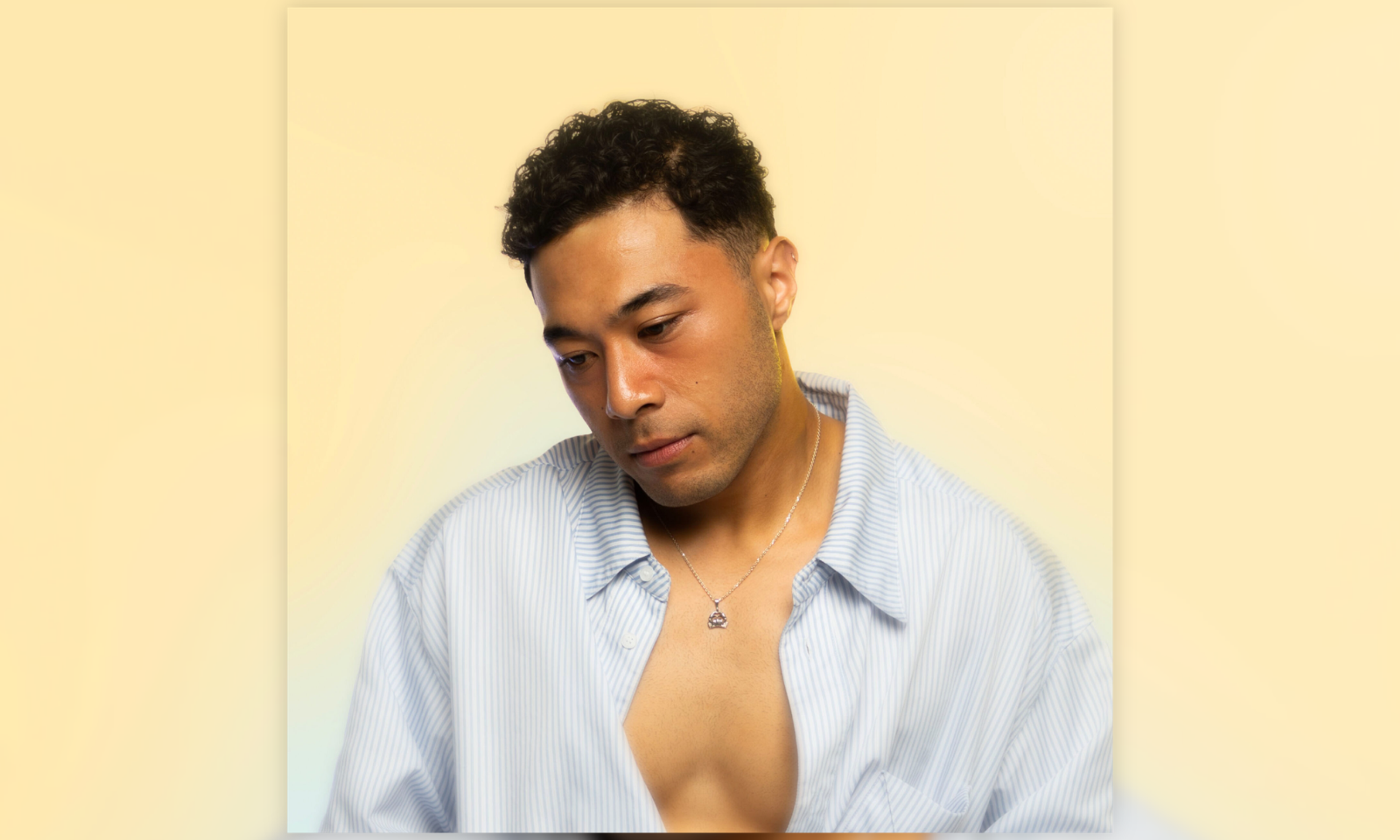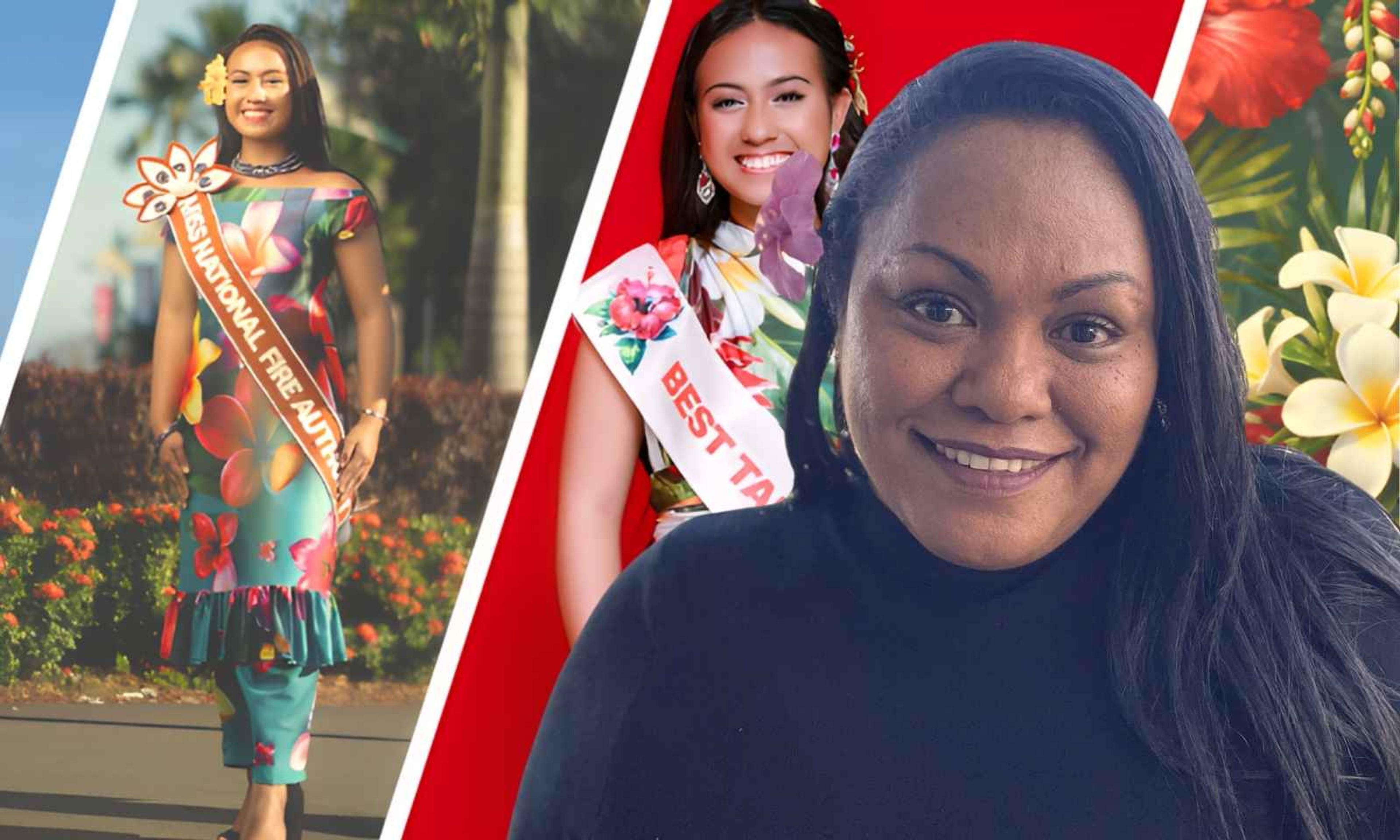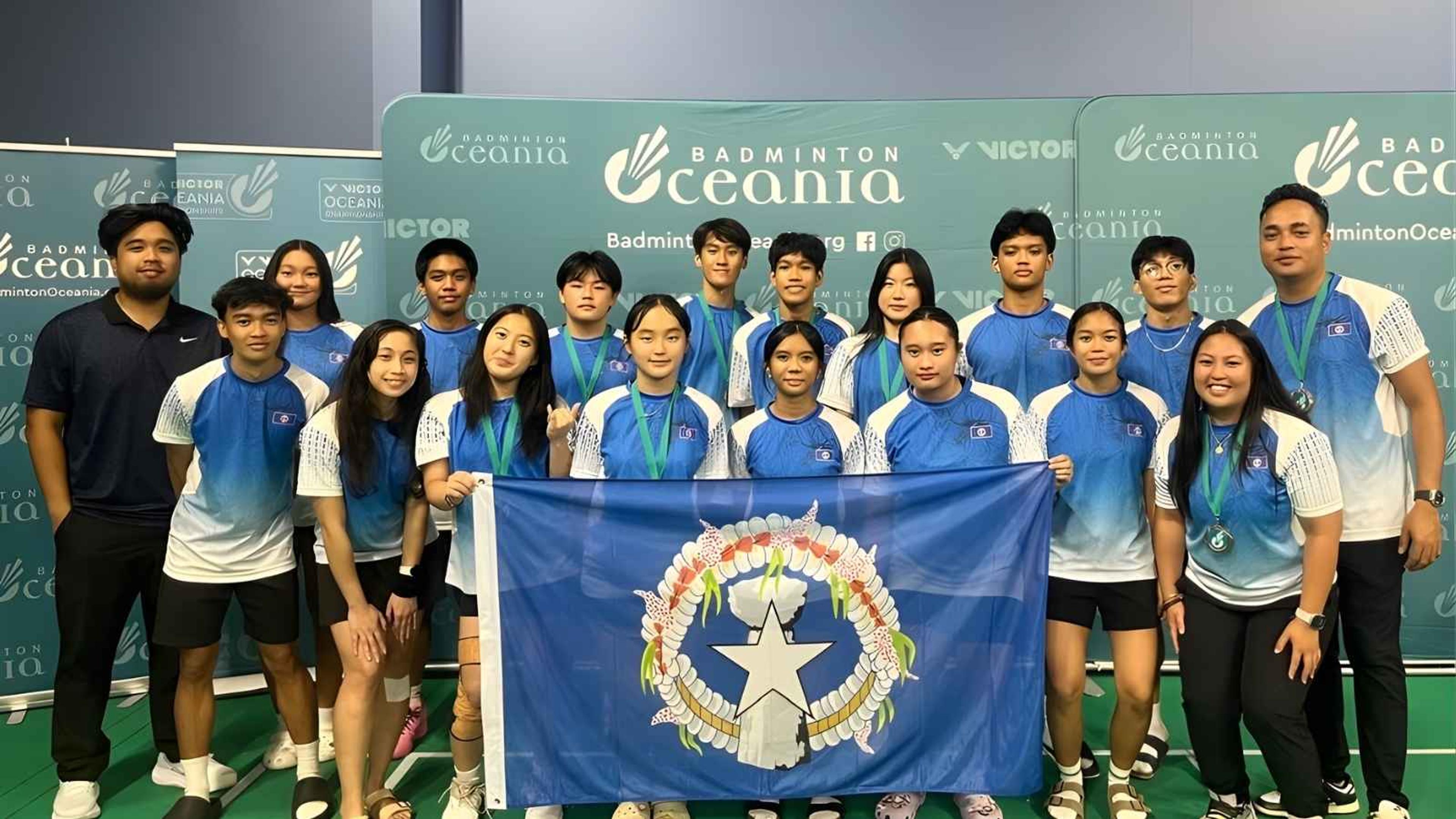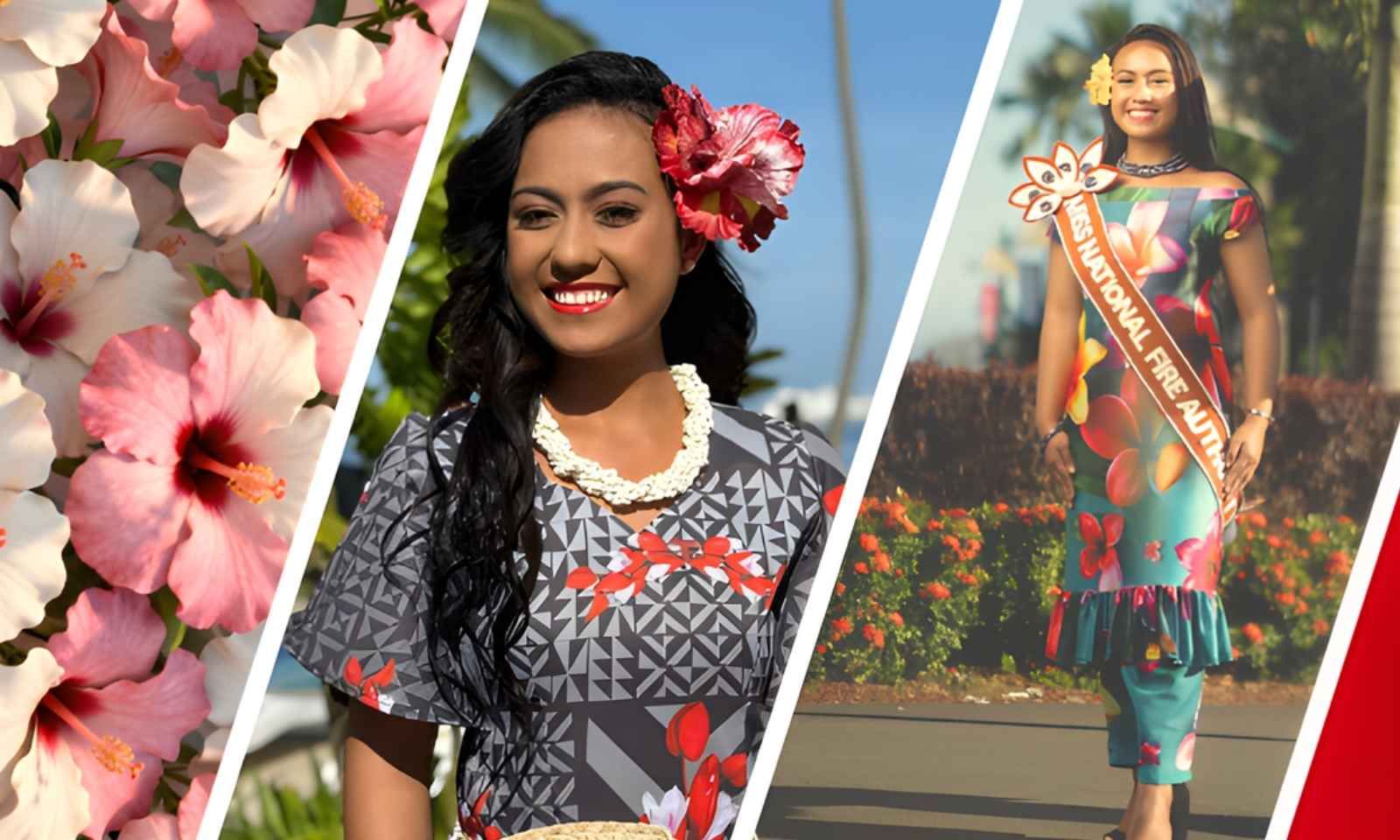

Local pageant queen Rhyelle Aisea, left, and Lice Movono.
Photo/Facebook
How Lice Movono’s fashion label was born from her journalism
The ABC correspondent in Fiji says her brand, UKUU, has grown into a celebration of Fijian identity, showcased during Fijian Language Week.



Digital Lifeline: New app helps Sāmoans abroad reclaim their heritage

Northern Mariana Islands smash regional barriers with historic Auckland bronze

Sāmoa tightens control of district funds with new seizure powers


Tyrun re-imagines Niuean love in smooth new R&B single ‘Fila’

Digital Lifeline: New app helps Sāmoans abroad reclaim their heritage

Northern Mariana Islands smash regional barriers with historic Auckland bronze

Sāmoa tightens control of district funds with new seizure powers
A Fijian journalist is celebrating her identity through storytelling and design during Macawa ni Vosa vakaViti - Fijian Language Week.
This year’s theme, “Na noqu vosa me na tekivu mai vale”, translates to “my language starts at home”, highlighting the role of language in nurturing wellbeing, connection, and belonging.
Lice Movono is a mother of two and has worked in the media for around 25 years. She is currently part of the Australian Broadcasting Corporation’s (ABC) Pacific Local Journalism Network, where she reports on politics, gender, climate change, and Pacific affairs.
During this year’s Fijian Language Week, celebrated by the diaspora in New Zealand, Movono reflects on cultural identity, language, and storytelling - values that guide both her journalism and the growth of her fashion brand, UKUU.
Speaking with Tofiga Fepulea’i on Island Time, Movono explains how her roots in Cakaudrove and Tailevu, including her upbringing on Taveuni island, have deeply shaped her worldview.
“I take this time to first honour the Chiefs of the Cakaudrove and also Tailevu,” she says. “I have a very passionate interest in promoting, raising awareness and to an extent protecting indigeneity in Fiji and the Pacific. So a lot of my work tends to be around indigenous activities and cultural forms of expression,” Movono says.
Listen to Lice Movono’s full interview below.
UKUU blends Fijian heritage and Pacific storytelling through traditional motifs, masi (bark cloth), and designs honouring chiefs and ancestors. Movono says each piece tells a story, using motifs like the island's skies, Suva sunset’s colours to the tagimoucia flower which is endemic to Taveuni.
Movono conceived UKUU as a result of her journalistic work, which required her to wear formal Western attire. As her reports reached larger audiences, she became more aware of how her appearance affected perception.
“When I hit my first million views on one of my stories, that idea of who's looking at me, what they read or view from what I wear, and how I present myself became a lot more prominent.
“When I started to get feedback from young girls in particular, I worried about what kind of impact it had on them. As a mum, that concept was prominent in daily conversations with my daughter, Esther. So I started to move away from wearing Australian, European or American brands on TV.
“I wanted people to see my masi [tapa cloth] and not confuse it with the tapa from the other countries in the Pacific. I don't love when the entire Pacific just gets grouped together like we're homogeneous because we're not. We’re many different, beautiful cultures.”

Suva’s Miss Hibiscus queen, Rhyelle Aisea, wears UKUU. Photo/Facebook
Movono describes UKUU as a blend of her journalistic storytelling and cultural pride, emphasising that its inception was unplanned. She says UKUU was not meant to be a public label or business venture.
The first UKUU garment was designed for a keynote speech at an ABC-hosted Asia-Pacific conference.Movono chose to wear motifs from her home province and masi that honoured her roots.
When her colleagues saw her outfit, they asked her to wear similar designs, which prompted Movono to make more pieces for her team.
“Then I stumbled onto this beautiful young Rotuman girl, Rhyelle Aisea, whose family and sponsors asked me to coach her at the Miss Hibiscus Pageant, which is Fiji's premier beauty pageant,” Movono says.
“We had only 10 days to prepare before the pageant. So there wasn't any time to go shopping and neither did she. So she wore UKUU. She was wearing UKUU every day except for the crowning.
“So I ended up making 15 garments in total, including her traditional attire, which won the fashion wear category of the week, which is the traditional-inspired category.”
The brand received wide praise in Fiji and abroad. Movono says Fijians from Australia, New Zealand and the United States felt resonated with the stories told in her designs. She says she hopes her daughter will take on the brand as a side hustle.
As Fijian Language Week celebrations kick off across New Zealand, Movono says she resonates strongly with this year’s theme regarding language growth at home. She says teaching her language to her children at home gives them “access to their village, to their community”.
“More importantly for me, it gives them access to the wisdom and the mana of their ancestors, great people who achieved great things in the face of difficulty.
“So it's my firm belief that when children know their mother tongue, they'll know their culture, the wisdom and the traditional knowledge of the people they come from.
“In the world we currently live in, where so much is going wrong, anything that will help ground our children can't be underestimated for its value.”
Fijian Language Week runs from 5 to 11 October 2025, ending on Saturday. Fiji Day, which marks the nation’s independence from the United Kingdom, will be celebrated on Friday. For more information on the weeklong activities, click here.